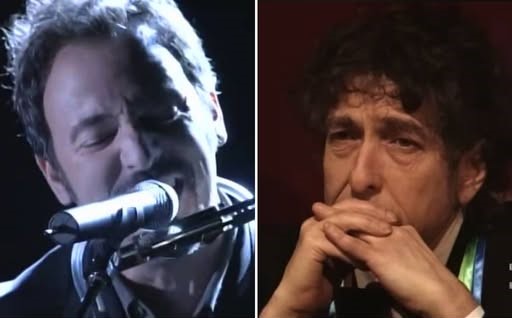
Bruce Springsteen Captivates Audience with Thoughtful Rendition of Dylan’s Classic
A Voice for the Moment, a Song for the Ages
At the 1997 Kennedy Center Honors, Bruce Springsteen didn’t just take the stage — he transformed it. In a room filled with American leaders, cultural icons, and legends of the arts, he stepped into the light with nothing but an acoustic guitar and the weight of history on his shoulders.
What followed was not simply a rendition of Bob Dylan’s “The Times They Are A-Changin’.”
It was a reckoning — quiet, powerful, and deeply human.
Dressed in solemn black, Springsteen stood alone, his voice gravel-rich and unvarnished. From the opening line, “Come gather ’round people wherever you roam…,” he delivered Dylan’s lyrics not as a cover, but as a renewal — a reminder that the call for change still echoes through every generation.
The Kennedy Center fell still.
No applause, no movement — just collective reflection as Springsteen gave the song new shape, grounded in experience and empathy.
This wasn’t just a tribute. It was a moment of shared truth. A passing of the torch. A haunting reminder that the times are always changing — and that music still leads the way.





